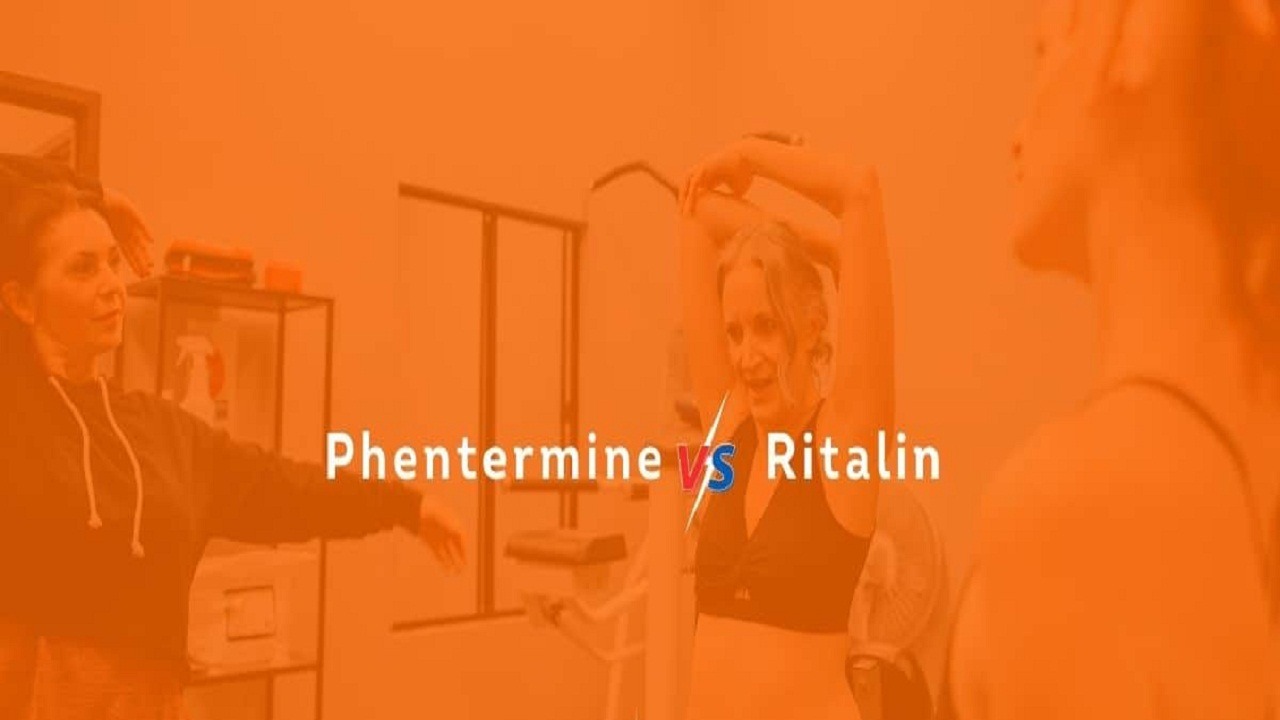Phentermine vs Ritalin
Contents
- 1 Phentermine vs Ritalin
- 2 Ritalin for Weight Loss
- 3 Phentermine for Weight Loss
- 4 Side Effects of Phentermine vs. Ritalin for Weight Loss
- 5 Combining Phentermine and Ritalin
- 6 Interactions Between Phentermine and Ritalin
- 7 Phentermine Dosage
- 8 Ritalin Dosage
- 9 Side Effects of Phentermine vs. Ritalin
- 10 Ritalin and Phentermine Alternatives
- 11 FAQs
- 12 Conclusion
When it comes to the realm of weight loss medications, the decision between Phentermine and Ritalin involves a nuanced evaluation of their unique properties and potential applications. In this comprehensive guide on Phentermine vs Ritalin, we will delve into the distinct features of each drug, examining their mechanisms of action, primary uses, and considerations for those contemplating their use in the pursuit of weight loss.
Related Article: PhenQ vs PhenGold | Decoding the Dynamics of Popular Weight Loss Supplements
Ritalin for Weight Loss
Understanding the origins of Ritalin as a treatment for Attention Deficit Hyperactivity Disorder (ADHD) provides essential context for its potential role in weight loss. Ritalin, or methylphenidate, primarily influences neurotransmitters like dopamine and norepinephrine in the brain, enhancing focus and attention. This section will explore the scientific basis behind Ritalin’s impact on these neurotransmitters and how it might extend to appetite and energy expenditure, making it a topic of interest for individuals seeking weight loss solutions.
Moreover, delving into the off-label use of Ritalin for weight loss will shed light on the limited scientific evidence supporting its efficacy in this context. This balanced examination will empower readers to make informed decisions, recognizing the potential benefits alongside the lack of conclusive research.
Phentermine for Weight Loss

Phentermine, an FDA-approved medication specifically designed for short-term weight loss in obese individuals, operates as a sympathomimetic amine. This section will elucidate the pharmacological mechanism by which Phentermine acts as an appetite suppressant, stimulating the release of norepinephrine in the brain. Understanding the controlled nature of Phentermine and its potential for abuse will be crucial for readers to appreciate the importance of its short-term prescription, typically lasting a few weeks.
Incorporating Phentermine into a comprehensive weight loss plan, which includes dietary modifications and increased physical activity, will be explored. By elucidating the holistic approach to weight loss, readers will gain a more nuanced understanding of Phentermine’s role in a broader context.
Side Effects of Phentermine vs. Ritalin for Weight Loss
Both Phentermine and Ritalin, being stimulants, share common side effects that warrant careful consideration. This section will provide a comprehensive overview of potential side effects, emphasizing the nuances in their prevalence and intensity. Factors influencing individual variations in response to these medications will be explored, highlighting the importance of close monitoring under the guidance of healthcare professionals.
A detailed examination of Ritalin’s likelihood to cause nervousness and anxiety, compared to Phentermine’s potential impact on appetite suppression, will offer readers insights into the specific aspects they should be attentive to during their weight loss journey.
Combining Phentermine and Ritalin
The prospect of combining Phentermine and Ritalin for weight loss introduces a complex dimension to the discussion. This section will explore the potential benefits and risks associated with such a combination, emphasizing the necessity of professional guidance. By unraveling how these stimulant medications interact, readers will gain insights into the potential amplification of side effects and the importance of careful dosage adjustments.
This section will underscore the significance of not self-prescribing or experimenting with medication combinations without expert supervision. Real-life examples and case studies may be integrated to illustrate the potential consequences of unguided attempts to combine these medications.
Interactions Between Phentermine and Ritalin
Understanding the interactions between Phentermine, Ritalin, and other medications is crucial for ensuring the safety and efficacy of the overall treatment plan. Here is a reference list of potential drug interactions with both medications:
- Ezoic: While there is no documented interaction with Ezoic, it is advisable to inform healthcare providers about all medications, including supplements and online platforms, to assess potential synergies or conflicts.
- Antidepressants: Combining Phentermine or Ritalin with certain antidepressants, such as monoamine oxidase inhibitors (MAOIs) or tricyclic antidepressants (TCAs), may increase the risk of side effects, including dizziness, agitation, and sleeplessness. Caution and medical supervision are recommended when using either medication alongside antidepressant medications.
- Stimulants: Concurrent use of Phentermine or Ritalin with other stimulants may lead to increased blood pressure, heart rate, and body temperature, posing serious health risks. Additionally, limiting the intake of caffeine-containing beverages while on either medication is advised to reduce the potential for stimulant-related interactions.
- Alcohol: Drinking alcohol while taking Phentermine or Ritalin can intensify the effects of both substances, potentially increasing the risk of side effects such as confusion, drowsiness, or anxiety. Individuals prescribed either medication should exercise caution and moderation regarding alcohol consumption.
- Illicit drugs: Using recreational drugs like cocaine or methamphetamine alongside Phentermine or Ritalin can potentiate sedating effects, leading to potential overdose or life-threatening consequences. It is crucial to avoid combining either medication with illicit substances to mitigate serious health risks.
Real-world scenarios and examples will be incorporated to elucidate the practical implications of these interactions. The emphasis will be placed on the importance of transparent communication with healthcare providers regarding all medications, supplements, or herbs, ensuring readers grasp the significance of proactive health management.

Phentermine Dosage
The dosage of Phentermine is intricately tailored, taking into account individual factors such as age, weight, and overall health. The rationale behind dosage adjustments lies in achieving an optimal balance between maximizing weight loss benefits and minimizing potential side effects. This section delves into the nuanced considerations involved in Phentermine dosage, presenting real-world scenarios to offer practical insights. Understanding the importance of adhering to prescribed dosages is essential, empowering individuals with the knowledge needed to navigate the complexities of Phentermine usage responsibly.
Ritalin Dosage
A parallel examination of Ritalin dosage will be conducted in this section, offering readers insights into the individualized nature of prescriptions based on factors like age, weight, and the specific condition being treated. Understanding the typical dosages prescribed for ADHD and the variations that might occur in off-label applications for weight loss will be addressed.
By presenting dosage information in a contextualized manner, readers will gain a clearer understanding of the therapeutic considerations that guide healthcare professionals in prescribing Ritalin. This section aims to demystify the intricacies of dosage adjustments, ensuring readers are equipped with the knowledge to engage in informed discussions with their healthcare providers.
Side Effects of Phentermine vs. Ritalin
Building upon the earlier discussion of side effects, this section will provide a more detailed analysis of the nuances in side effect profiles for Phentermine and Ritalin. Emphasis will be placed on specific side effects such as increased heart rate, insomnia, nervousness, and appetite suppression, allowing readers to anticipate and recognize potential reactions.
Real-life anecdotes and case studies may be integrated to offer a practical perspective on how side effects can manifest and be managed. This comprehensive exploration will further empower readers to make informed decisions about their weight loss journeys, armed with a deeper understanding of potential consequences.
Ritalin and Phentermine Alternatives
Here we will be introduced to alternatives for weight loss that extend beyond the realm of prescription medications. Non-pharmacological approaches, including adopting a healthy diet, engaging in regular physical activity, and incorporating behavior modification strategies, will be explored in detail.
Moreover, readers will gain insights into other prescription medications for weight loss, such as Orlistat and Liraglutide, allowing for a more informed comparison of the potential benefits and drawbacks associated with different weight loss interventions.
The importance of personalized approaches to weight loss, considering individual health profiles and preferences, will be emphasized. By exploring a spectrum of alternatives, readers will be better equipped to make choices aligned with their unique needs and circumstances.
FAQs
- Can Phentermine and Ritalin be used interchangeably for weight loss?
No, Phentermine and Ritalin are distinct medications with different primary purposes. Phentermine is FDA-approved for short-term weight loss, while Ritalin is primarily prescribed for attention deficit hyperactivity disorder (ADHD). Their mechanisms of action and potential side effects differ, and they are not interchangeable.
- What are the primary differences between Phentermine and Ritalin in terms of their mechanisms of action?
Phentermine primarily works as an appetite suppressant by stimulating the release of norepinephrine in the brain. Ritalin, on the other hand, increases dopamine and norepinephrine levels, primarily to improve focus and attention in ADHD. The different neurotransmitters targeted contribute to their distinct effects.
- Is Ritalin prescribed for weight loss or is it primarily an ADHD medication?
Ritalin is primarily prescribed for ADHD. While it has stimulant properties that may influence appetite and energy expenditure, its use for weight loss is considered off-label and lacks sufficient scientific evidence supporting its effectiveness in this context.
- Can combining Phentermine and Ritalin enhance weight loss results?
Combining these medications is not recommended without professional guidance. The potential for increased side effects and complications exists. The decision to use them together should be made under the supervision of a healthcare professional who can assess the risks and benefits.
- What factors should I consider when choosing between Phentermine and Ritalin for weight loss?
Consider factors such as your medical history, existing health conditions, and the primary purpose of each medication. Phentermine is specifically approved for weight loss, while Ritalin is designed for ADHD. Consult with your healthcare provider to determine which option aligns better with your health goals.
- Do Phentermine and Ritalin have similar side effects when used for weight loss?
Both medications share common stimulant side effects, including increased heart rate, elevated blood pressure, insomnia, and dry mouth. However, the prevalence and severity of specific side effects may vary. Individual responses to each medication should be closely monitored with the guidance of a healthcare professional.
- How long is Phentermine typically prescribed for weight loss compared to Ritalin?
Phentermine is usually prescribed for short-term use, typically a few weeks, due to concerns about tolerance and potential side effects. Ritalin, when used off-label for weight loss, may also have a limited duration of use, but this varies and should be determined by a healthcare provider.
- Are there alternative medications to Phentermine and Ritalin for weight loss?
Yes, several alternatives exist. Orlistat, a medication that reduces the absorption of dietary fat, and Liraglutide, which affects appetite regulation, are among the alternatives. Lifestyle changes, including a healthy diet and regular exercise, are also crucial components of effective weight loss plans.
- Can I take Phentermine or Ritalin if I have a history of heart conditions?
Individuals with a history of heart conditions should exercise caution and consult with a healthcare professional before using either medication. Both Phentermine and Ritalin can increase heart rate and blood pressure, potentially exacerbating cardiovascular issues.
- Do Phentermine and Ritalin have interactions with other medications I might be taking?
Yes, both medications can interact with other drugs. Inform your healthcare provider about all medications, supplements, or herbs you are taking to avoid potential interactions that may affect their efficacy or lead to adverse reactions.
- What precautions should I take if I’m considering combining Phentermine and Ritalin?
Combining these medications should only be done under the guidance of a healthcare professional. Precautions include close monitoring for increased side effects, potential interactions with other medications, and adjustments to dosages based on individual responses.
- Can either Phentermine or Ritalin be used for long-term weight management? Phentermine is typically prescribed for short-term use due to concerns about tolerance and potential side effects. Ritalin, when used for weight loss, may also have a limited duration of use. Long-term weight management often involves lifestyle changes, and the use of medications should be carefully evaluated.
- Are there any dietary restrictions or specific lifestyle changes recommended when using Phentermine or Ritalin for weight loss?
Both medications are most effective when combined with a healthy diet and regular exercise. However, specific dietary restrictions may not be required. Lifestyle changes that support overall health, such as avoiding excessive caffeine intake and getting adequate sleep, can enhance the effectiveness of these medications.
- How quickly can I expect to see results with Phentermine compared to Ritalin? Individual responses vary, but both medications may lead to relatively rapid weight loss within the first few weeks of use. Phentermine’s appetite-suppressant effects can lead to quicker initial results, but the speed of weight loss depends on various factors, including adherence to dietary and lifestyle changes.
- If I experience side effects with one medication, can I switch to the other for weight loss?
Switching medications should be done under the guidance of a healthcare professional. The decision to switch depends on the specific side effects, individual response, and the primary goals of weight loss. It is essential to communicate openly with your healthcare provider to ensure a safe and effective transition.
Conclusion
In conclusion, the comparison between Phentermine and Ritalin for weight loss reveals nuanced differences and considerations. While both medications share stimulant properties, they are designed for distinct purposes and come with their own set of potential risks and benefits. The decision to use these medications should be made in consultation with a healthcare professional, taking into account individual health factors and the potential for side effects. Non-pharmacological approaches and alternative medications should also be explored for a holistic and personalized approach to weight loss.



